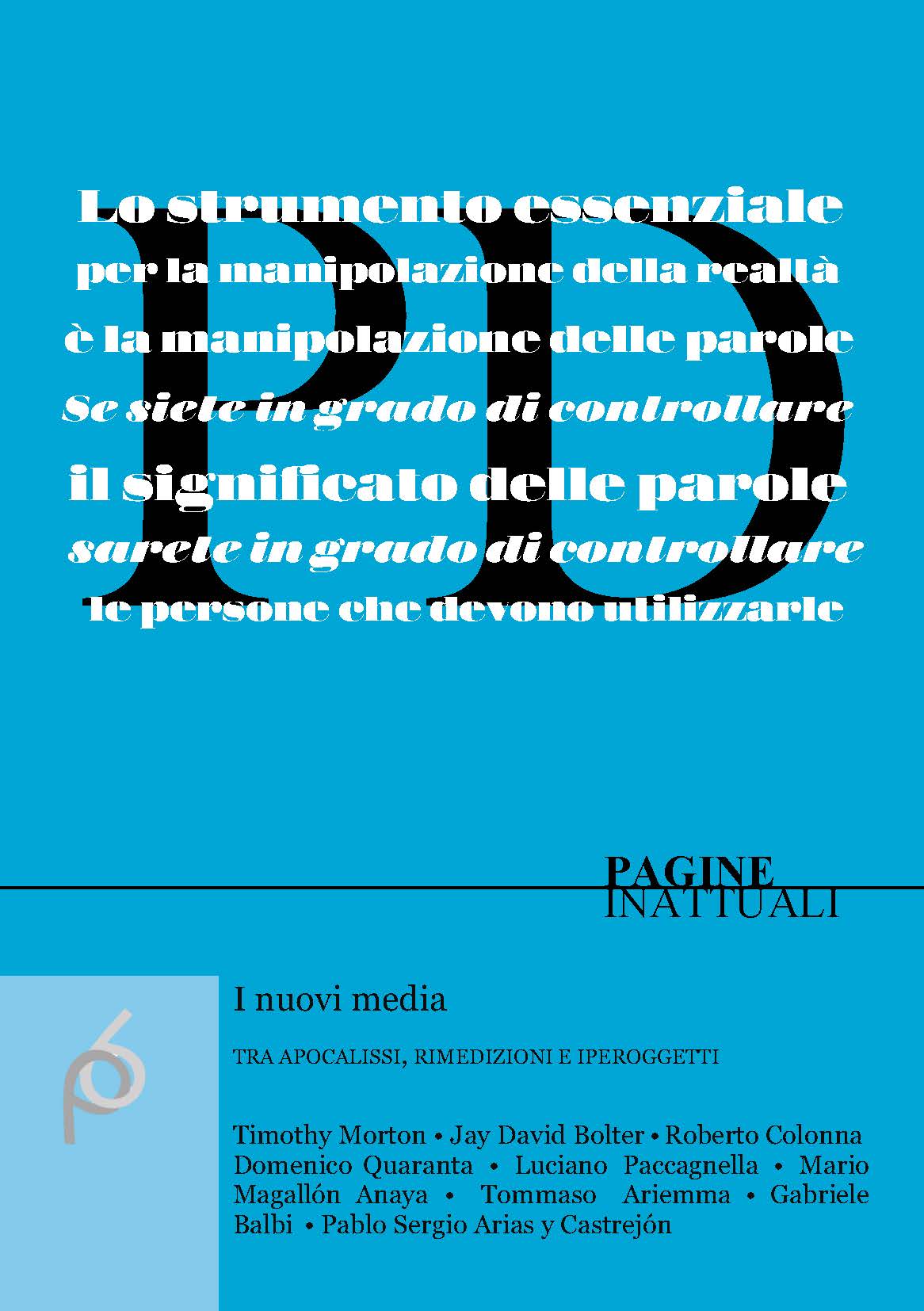L’erosione dello spazio pubblico nella società delle piattaforme
Dal colonialismo dei dati all’intelligenza artificiale generativa
Abstract
Nei decenni a cavallo tra XX e XXI secolo si realizza il passaggio dalla società in rete basata su Internet come tecnologia aperta, all’attuale società delle piattaforme i cui servizi sono forniti quasi esclusivamente da pochissime grandi aziende private. Viviamo oggi agli albori del colonialismo dei dati, un fenomeno molto più pervasivo della semplice questione relativa all’appropriazione dei dati personali da parte delle Big Tech. Infatti, nonostante la diffusa metafora dei dati come “nuovo petrolio”, i dati raccolti e trasformati in ricchezza dalle piattaforme non sono risorse naturali, ma sono invece attivamente costruiti e pre-strutturati dalle piattaforme stesse secondo logiche opache e non trasparenti. Nel contesto di questa discussione, ci concentriamo anche sull’Intelligenza Artificiale (IA) generativa, definendola e delineandone le funzionalità. Gli strumenti di IA generativa attualmente disponibili sono anch’essi di proprietà privata e opachi nel loro funzionamento, seguendo istruzioni, regole e limiti che vengono tutelati dal segreto industriale e che la collettività non può conoscere nei dettagli. Accanto a potenzialità e opportunità inedite che vanno riconosciute, nello scenario digitale contemporaneo si prefigura quindi il rischio di una progressione erosione dello spazio pubblico di discussione e confronto, limitato a monte da regole del gioco decise su un tavolo a cui i cittadini e la società civile non possono sedersi.
Downloads
Copyright (c) 2024 Luciano Paccagnella

This work is licensed under a Creative Commons Attribution 4.0 International License.
Pagine Inattuali è pubblicata ad accesso aperto, per assicurare la più ampia diffusione e circolazione possibile al sapere vagliato dalla comunità scientifica.
Tutto il materiale pubblicato è distribuito con licenza "Creative Commons - Attribuzione" (CC-BY 4.0).
Con la licenza CC-BY, gli autori mantengono il copyright sui loro contributi, garantendo tuttavia a chiunque la possibilità di scaricare, riusare, ristampare e distribuire i materiali pubblicati, con la sola condizione che siano correttamente citati l'autore e la sede di prima pubblicazione.

